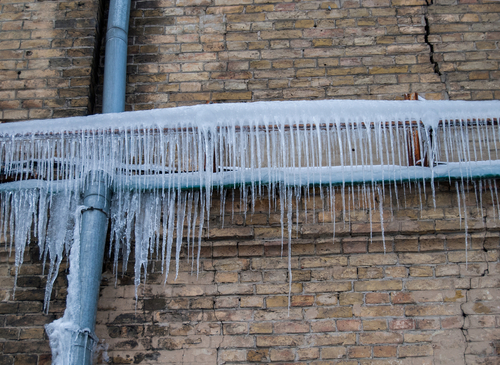Protecting Against Frozen Pipes in Winter: Professional Strategies
Protecting Against Frozen Pipes in Winter: Professional Strategies
Blog Article
What are your opinions about Helpful Tips to Prevent Frozen Pipes this Winter?

Winter can damage your plumbing, especially by freezing pipelines. Below's how to prevent it from occurring and what to do if it does.
Introduction
As temperature levels drop, the threat of frozen pipes rises, possibly resulting in pricey repairs and water damage. Comprehending exactly how to prevent icy pipelines is critical for house owners in chilly environments.
Comprehending Icy Pipes
What triggers pipes to ice up?
Pipes ice up when exposed to temperature levels listed below 32 ° F (0 ° C) for prolonged periods. As water inside the pipelines freezes, it expands, taxing the pipeline walls and potentially creating them to rupture.
Dangers and problems
Frozen pipelines can lead to water interruptions, residential property damage, and expensive repair services. Ruptured pipes can flooding homes and create substantial architectural damage.
Indications of Frozen Piping
Identifying frozen pipelines early can prevent them from bursting.
How to determine icy pipes
Try to find lowered water circulation from faucets, unusual smells or noises from pipelines, and visible frost on exposed pipelines.
Avoidance Tips
Shielding prone pipelines
Cover pipelines in insulation sleeves or utilize warmth tape to safeguard them from freezing temperatures. Focus on pipelines in unheated or exterior locations of the home.
Heating strategies
Maintain interior rooms appropriately heated, especially areas with plumbing. Open cabinet doors to enable cozy air to flow around pipelines under sinks.
Protecting Outside Pipes
Yard tubes and exterior taps
Detach and drain garden hoses prior to winter months. Mount frost-proof faucets or cover exterior taps with protected caps.
What to Do If Your Pipelines Freeze
Immediate actions to take
If you presume frozen pipelines, keep taps available to ease pressure as the ice thaws. Utilize a hairdryer or towels soaked in hot water to thaw pipelines gradually.
Long-Term Solutions
Architectural modifications
Consider rerouting pipelines away from exterior wall surfaces or unheated areas. Include additional insulation to attics, cellars, and crawl spaces.
Upgrading insulation
Invest in premium insulation for pipelines, attic rooms, and walls. Correct insulation aids maintain regular temperatures and minimizes the risk of frozen pipes.
Final thought
Stopping icy pipelines calls for positive actions and quick responses. By recognizing the reasons, indications, and safety nets, house owners can protect their plumbing throughout winter.
Helpful Tips to Prevent Frozen Pipes this Winter
UNDERSTANDING THE BASICS: WHY PIPES FREEZE AND WHY IT’S A PROBLEM
Water freezing inside pipes is common during the winter months, but understanding why pipes freeze, and the potential problems it can cause is crucial in preventing such incidents. This section will delve into the basics of why pipes freeze and the associated problems that may arise.
THE SCIENCE BEHIND FROZEN PIPES
When water reaches freezing temperatures, it undergoes a physical transformation and solidifies into ice. This expansion of water as it freezes is the primary reason pipes can burst. As the water inside the pipe freezes, it expands, creating immense pressure on the walls. If the pressure becomes too great, the pipe can crack or rupture, leading to leaks and water damage.
FACTORS THAT CONTRIBUTE TO PIPE FREEZING
Low Temperatures: Extremely cold weather, especially below freezing, increases the risk of pipes freezing. Uninsulated or Poorly Insulated Pipes: Pipes located in unheated areas, such as basements, crawl spaces, or attics, are more prone to freezing. Insufficient insulation or lack of insulation altogether exacerbates the problem. Exterior Wall Exposure: Pipes running along exterior walls are susceptible to freezing as they encounter colder temperatures outside. Lack of Heating or Temperature Regulation: Inadequate heating or inconsistent temperature control in your home can contribute to frozen pipes. PROBLEMS CAUSED BY FROZEN PIPES
- Pipe Bursting: As mentioned earlier, the expansion of water as it freezes can cause pipes to burst, resulting in significant water damage.
- Water Damage: When pipes burst, it can lead to flooding and water damage to your property, including walls, ceilings, flooring, and personal belongings.
- Structural Damage: Prolonged exposure to water from burst pipes can compromise the structural integrity of your home, leading to costly repairs.
- Mold and Mildew Growth: Excess moisture from water damage can create a favorable environment for mold and mildew growth, posing health risks to occupants.
- Disrupted Water Supply: Frozen pipes can also result in a complete or partial loss of water supply until the issue is resolved.
WHY CERTAIN PIPES ARE MORE PRONE TO FREEZING
- Location: Pipes located in unheated or poorly insulated areas, such as basements, crawl spaces, attics, or exterior walls, are at higher risk of freezing.
- Exterior Pipes: Outdoor pipes, such as those used for irrigation or exposed plumbing, are particularly vulnerable to freezing as they are directly exposed to the elements.
- Supply Lines: Pipes that carry water from the main water supply into your home, including the main water line, are critical to protect as freezing in these lines can affect your entire plumbing system.
- Underground Pipes: Pipes buried underground, such as those connected to sprinkler systems or outdoor faucets, can be susceptible to freezing if not properly insulated.
https://busybusy.com/blog/helpful-tips-to-prevent-frozen-pipes-this-winter/
.jpg)
We had been shown that write-up about Prevent Frozen Pipes from an acquaintance on our other web property. Are you aware of someone else who is inquisitive about the topic? Why not share it. Thank you for taking the time to read it.
Here Report this page